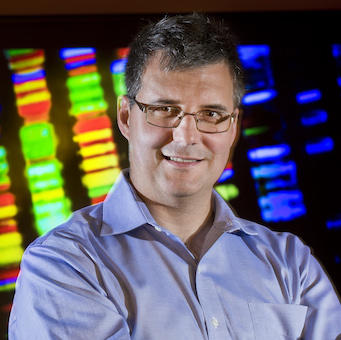Director's Message to UMIACS
Fall 2020 has been an exciting semester for the campus’s quantum community. The quantum computing startup IonQ–which was co-founded by faculty member Chris Monroe in 2015–just launched a new data center in the Discovery District. Monroe was recognized in this month’s issue as one of The Optical Society’s newest fellows.
IonQ also recently announced that they have now built the world's most powerful quantum computer. According to Maryland Today, the company is working on three new generations of quantum computers in parallel, each expected to be exponentially more powerful than the last.
Furthermore, two new fellows have joined QuICS, and a third–Nicole Yunger Halpern–has committed to her fellowship for next fall. If you haven’t already, I highly recommend reading Yunger Halpern’s blog post on why she chose to join QuICS, and ultimately the University of Maryland’s quantum community. Or, at least read this excerpt:
“Few universities ingrain interdisciplinarity into their bones by dedicating institutes to it,” she writes. “Maryland’s quantum and thermodynamics communities bustle and produce. They grant NIST researchers an academic environment, independence to shape their research paths, and the freedom to participate in the broader scientific community.”
Yunger Halpern’s insightful stance is also a testament to UMIACS as an institution. Although some of our labs and centers have recently made efforts to increase diversity in their respective fields, I can’t help but notice Yunger Halpern’s solo female presence among the dozen other QuICS fellows. Besides co-founder and Distinguished University Professor Emerita Dianne O’Leary, and three of the 36 graduate students, the rest of the researchers in QuICS are men, including all 17 postdocs.
Both computer science and physics are notorious for their lack of gender diversity, resulting in few female role models in the field of quantum computing. In her blog post, Yunger Halpern references five quantum researchers she looks up to, all of whom are men.
Moving forward, we should consider applying the same strategies to the quantum community that have successfully increased diversity in other sciences. Quantum research is advancing at lightening speed, but the field also needs to improve its diversity to truly be successful.
In light of this month’s tense political climate, I’ll leave you with a quote from Steven Levy, editor at large of the technology magazine Wired, from his most recent message to subscribers fittingly titled “Quantum Computing is Bigger than Donald Trump.”
“Yes, a thousand years from now, historians will study the Donald Trump phenomenon and what it meant for our gutsy little experiment in democracy, as well as for the world at large,” writes Levy. “I am still confident, however, that historians will find more importance in learning about the moments in our lifetimes when science changed everything.”
Mihai Pop, UMIACS Director

